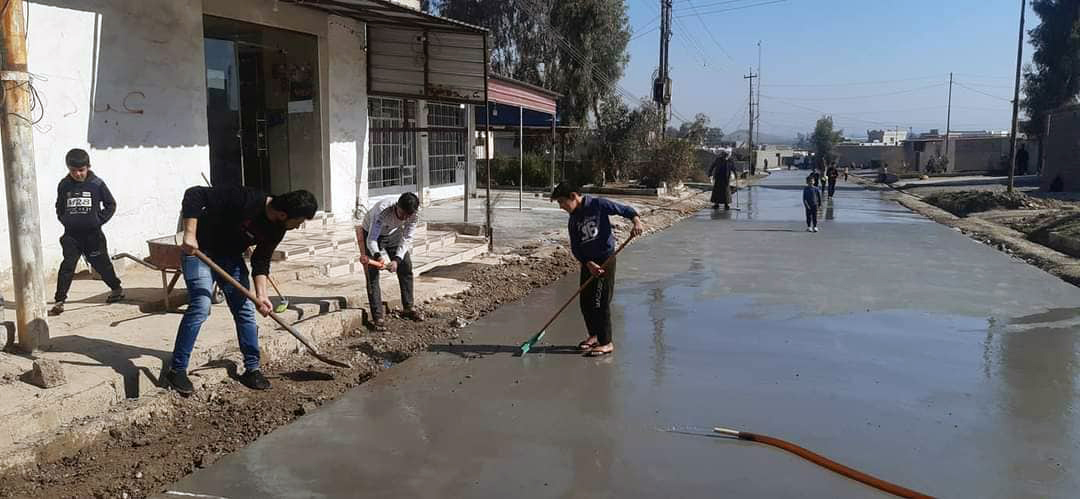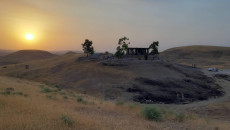The administration of Nineveh province in coordination with the local authorities have paved the main road linking the Kakai villages northwest of Mosul following three years of continuous calls by the locals.
In Nineveh Plains, the Kakayis are mainly settled in Qaraqush, the center of Hamdaniya district southwest of Mosul, particularly in the villages of Zangel, Majidiyah, Tulaband, Wardak with Kabarli, where over 20,000 Kaka’is live.
The Kakais of the Nineveh Plain are still trying to revive the agricultural sector due to the great damage and losses inflicted on their villages after the attacks of the Islamic State in Iraq and Levant ISIL in June 2014 and the military operations.
The Kakais, like other minorities, have been subject to persecution and violations as statistics obtained by KirkukNow from the mayor of al-Hamdaniya indicate that 10% of the district's population are still displaced.
Last February, the municipality of Nineveh in cooperation with municipality of Namrud sub-district have paved the roads in the village of Wardak by concrete, a project approved in 2019 to concrete two kilometers, said Taha Yasin Khurshid, representative of Wardak village.
“There is another seven kilometers to be paved yet,” he added. “We need restoration for sewage, drinking water supply and preparatory school for girls.”
Kaka'i, Yarsanism or Ahl Alhaq, is a secretive monotheist spiritual religion that has no special places for worship, a religion mostly practiced in Iraq and Iran. Kaka'i followers are about 100,000, mostly found in northern provinces of Sulaymaniyah, Kirkuk, Erbil, Nineveh, up to Diyala in the middle of Iraq.
The Kakais, like other minorities, have been subjected to persecution and violations as statistics obtained by KirkukNow from the mayor of al-Hamdaniya indicate that 10% of the district's population are still displaced.
Fahim Ahmed, a resident of Wardak, one of the biggest Kakai villages home to 4,000 villagers said they are still in need for tens of other public facilities such as renovation of sewerage.
Yarsanism, has not been officially recognized in the Iraqi constitution yet it has been in the semi-autonomous Iraqi Kurdistan region. Their villages were a target for extremist militants of the Islamic State of Iraq and Syria ISIS whom persecuted them as “idol worshippers.”
There are 18 Kaka’i shrines across Iraq, seven of them located in Kirkuk province. The most famous of them are: Sayyid-Ibrahim Shrine in Baghdad and the Sayyid-Baba Yadgar Shrine in Iran, which most Kaka'is visit to pray for curing diseases and fulfilling their wishes.
Tolerance and patience of Kaka'is made their survival easier. They enjoy a fairly safe, stable and free community aside of the external threats by the extremist groups in the disputed territories between Baghdad and Erbil.






